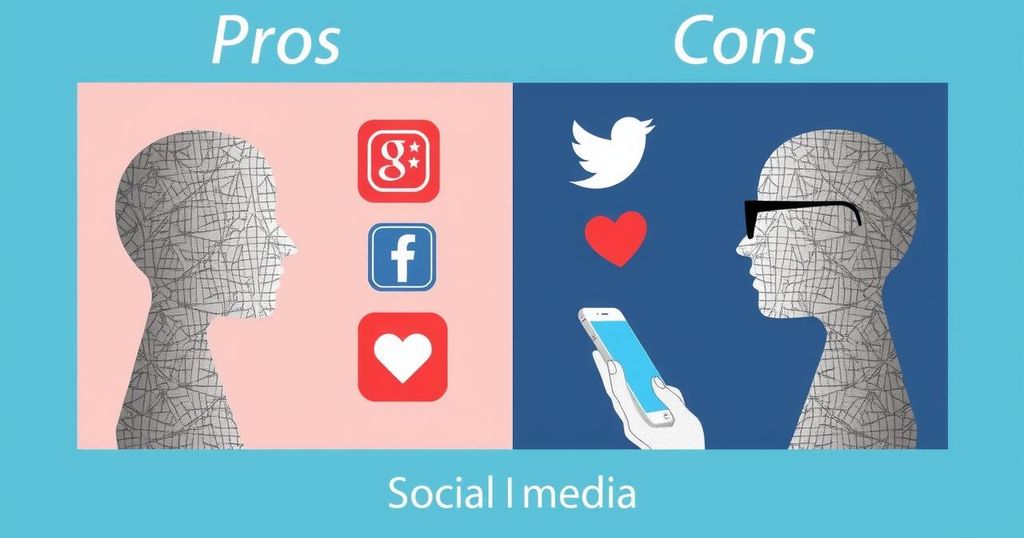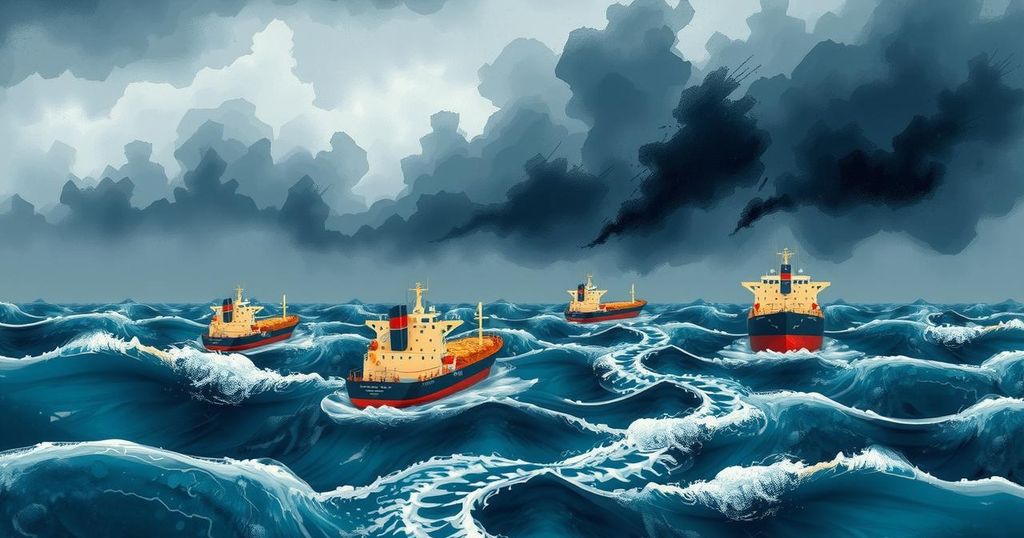The Influence of Social Media on Political Narratives: Musk, Pakistan, and Europe
The article analyzes the growing influence of social media under Elon Musk’s ownership of Twitter, examining its impact on political narratives in Pakistan and Europe. While Musk’s actions result in increased influence and controversy, traditional media struggles to maintain narrative control, particularly in authoritarian regimes. The implications for democratic governance and the need for effective regulation of social media platforms are discussed.
The current landscape of social media illustrates a dichotomy of influence, particularly as platforms like Twitter, now known as X under Elon Musk’s ownership, challenge traditional media norms in both Pakistan and established democracies in Europe such as Germany and the United Kingdom. Musk’s $44 billion acquisition raised eyebrows among analysts who questioned the viability of his investment. Nonetheless, it granted him unprecedented reach and political clout, significantly increasing his influence on public discourse.
In Pakistan, the hybrid government’s control over traditional media has imposed a one-sided narrative, leaving it vulnerable to challenges from the Pakistan Tehreek-e-Insaf (PTI) party, led by Imran Khan. While the government has employed authoritarian measures to counter dissent on social media, it struggles to shape the prevailing narrative, largely because of its lack of understanding and strategy in navigating digital platforms.
Elon Musk’s controversial stances, such as advocating for fast-tracked H-1B visas, have drawn backlash from conservative circles while simultaneously diverting attention from other issues he faced. In a move perceived as divisive, he echoed sentiments used by the far right in the UK regarding ethnicity-related non-prosecutions in grooming cases. Yet, historical context reveals that actions previously taken under the directorship of Sir Keir Starmer were not as Musk suggested.
Musk’s engagement in European politics, particularly his inclination towards Germany’s far-right AfD party, has stirred discussions among European leaders about social media’s potential to manipulate public opinion. This raises concerns regarding the integrity of democratic institutions, emphasizing the necessity for effective regulation of social media platforms. Without such measures, the democratic framework may face imminent challenges from the unchecked power of individual influencers in a digital age.
In conclusion, the intersection of social media with political power dynamics in Pakistan and beyond highlights pressing issues concerning narrative control, regulation, and the role of influential figures like Elon Musk. As governments grapple with these challenges, the need for a strategic and knowledgeable approach to social media how it shapes public discourse remains paramount.
The article discusses the evolving influence of social media platforms, particularly under the leadership of Elon Musk after his acquisition of Twitter (now X). It examines the implications of this influence in both Pakistan and Europe, where traditional media is heavily regulated. The challenges posed by unchecked social media narratives to the power and control of governmental bodies are emphasized, particularly in terms of how public opinion can be swayed. Furthermore, Musk’s political maneuvers and controversies serve as a case study for broader issues surrounding immigration policy and ethnic representations in law enforcement narratives.
The critique of social media’s evolving impact on public opinion, as seen in the cases of Elon Musk’s actions and the response from various governments, underscores a urgent need for regulation. The complexities of narrative control and political influence raise serious questions about the preservation of democratic values in the digital landscape. In an era where a single individual’s tweets can shift discourse significantly, the strategy and understanding of social media by political entities are crucial for the stability of democracy.
Original Source: www.dawn.com




Post Comment